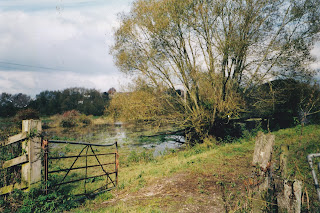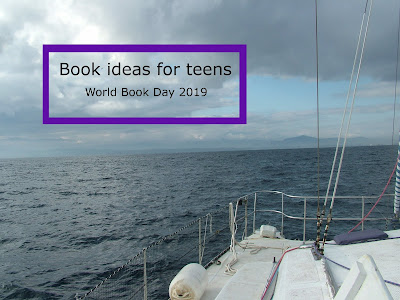TransatBakerly 2016
If there’s one thing I’ve learned...it’s that deep down in your heart, if you have a dream, then you can and must make it happen.” – Ellen MacArthur
Yesterday we enjoyed a lovely, but soggy, walk to watch some
very fast boats quickly become little dots on the horizon. It was the
culmination of a weeks build up to the 2016 TransatBakerly. Setting off from Britain ’s Ocean city, the fleet will sail 3,000
miles to New York
 |
| Fenders left behind on the empty pontoons |
This is the route followed in 1960 when a group of 5 British sailors had a
bet about sailing across the Atlantic the hard
way; into the prevailing winds and swell. The bet became a race and then became
the mother of all solo ocean races leading on to many more challenges for the
elite of ocean racers. These boats and their skippers are the fastest in the
world. Where Tarquilla bimbles along at 4 knots, the top sailors will reach
speeds of 30 knots+. Although the support teams are big and a lot of background
work goes into these endurance challenges, during the race itself it is as
Major Blondie Hasler said ‘one man, one boat, one ocean.’
The organisers arranged an education programme in the preparation week involving boat building apprentices, colleges and local schools. The two eldest deckhands went off with the school sailing club for a tour of the village and a talk by the skippers which they thoroughly enjoyed. STEM skills (science, technology, engineering and maths) are in high demand in the workplace but are less popular choices for students and this was a trip planned to open up many pathways to the future.
Sailing alongside the modern boats (The innovative Macif was
completed in Summer 2015) are iconic veterans from the Pen Duick class. The win by Eric
Tabarly in the 1964
Transat in Pen Duick II is credited with bringing enthusiasm for ocean sailing to France Europe for training.
The 2000 Transat was the race which
shot Dame Ellen MacArthur to fame. A relatively unknown 23-year-old British sailor at the time she took on and beat the best, showing her amazing ability on the water to the surprise of many.
Whereas the first race saw the winner, Sir Francis
Chichester, crossing the line after an amazing 40 days in Gypsy Moth, the fast
maxi-tri’s are expected to reach America Brest
Bon Vent to all
the Skippers and boats taking part this year. Lets hope that it is an exciting
and safe race for them all.









Comments
Post a Comment